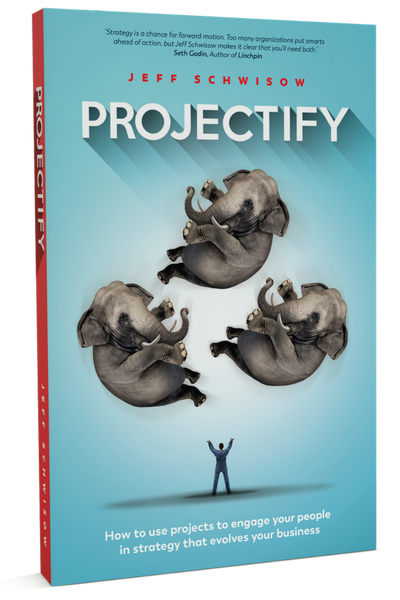
Why Greatness, Not Leadership, is the Secret to a Thriving Organisation
I’m a bit over discussions on Leadership. As we often use it, I don't like the term Leader. It conjures up images of someone who needs to be followed. We tend to think of strong leaders as the central point of control, someone directing the…

Make Projects the Bridge between the Business and Your People
I have a confession to make – as a “project guy” I don’t actually love projects. I'm passionate about projects, but not for the reasons you might think. My passion for projects comes from what they enable…the greatness that they can…

Move Your Improvement Efforts from Intervention to Intention
I recently had a brief exchange with an existing client organisation that speaks volumes about how a great number of businesses are managed today – the need for improvement is driven by crisis. Instead of being intentional about pursuing excellence,…

Why Does Strategic Planning So Seldom Result in…a Strategy?
Having been involved in strategic planning over my corporate career, I thought it pretty standard that the purpose of strategy development was to come up with a “strategic plan”. A document that dutifully incorporated a vision and mission,…

How Triage Will Keep Your Projects from Killing You
Projects are enablers. They are investments that your organisation makes to enable the business outcomes that help deliver your vision. Whether those outcomes are improved operational efficiency, a new revenue stream or improving your customer’s…

What business ought to know about cutting costs and increasing value
I've been struck by how consistently I see, read and hear that price (or expenditure) and service are a zero-sum game – to increase (or maintain) service, the price must go up; to reduce price, the service levels must go down. Our politicians…

How to Turn Busyness into Better Business Outcomes
Today’s business world tends to value activity over accomplishment – we look to ensure our people are “being productive”, highly utilised, busy. However, in the business of busyness, doing lots of things doesn’t necessarily mean that…

Projects are the New Normal
A couple of years ago I was asked to participate in a business improvement initiative by one of my contractor clients. The initiative was intended to create better process and structure around their project management systems with a particular…

Transformational Leadership is Collective
We tend to think of leadership as something that the head of a group or team provides to those under their charge – direction, inspiration, motivation, vision, and decisive decision-making – a package of skills that managers need to possess…

